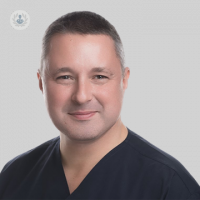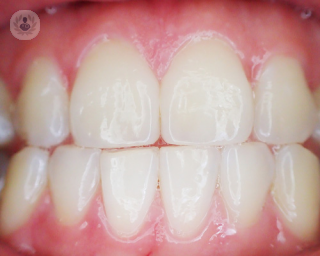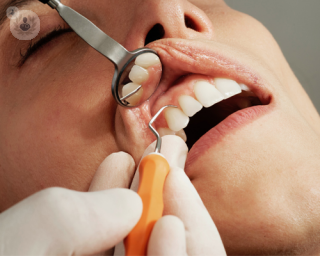Tooth abscess
What are tooth abscesses?
Tooth abscesses, which are also known as dental abscesses, are a collection of pus in the tooth, gum or surrounding bone that results from a bacterial infection. There are two main types of abscessed tooth:
- Periapical abscess – occurs at the end of a tooth at the root.
- Periodontal abscess – occurs inside the gum.

What are the main symptoms of a tooth abscess?
There are many symptoms that a patient with a tooth abscess will typically present with. They include the following:
- sharp, shooting pain in the gum or affected area
- pain or tenderness when chewing or biting
- pain or sensitivity to heat and cold
- swelling in the cheek or other areas around the mouth
- red and inflamed gums
- possible difficulty sleeping, as the pain intensifies when lying down
- an unpleasant taste in the mouth
- bad breath
- fever and a general feeling of being unwell, especially if the infection spreads
What causes a tooth abscess?
Oral hygiene is essential and not keeping your teeth and mouth clean can cause an increase in bacteria in the mouth. This bacteria can damage teeth and gums and cause a dental abscess. Additionally, the following can increase your chance of developing a tooth abscess:
- consuming sugary foods and drinks
- a weakened immune system
- having an injury to your teeth, or having had previous tooth or gum surgery
How is a tooth abscess treated?
The abscessed tooth must be treated, the cause of the infection resolved, and the pus from the tooth abscess drained.
Treatment varies depending on the severity of the dental abscess. A small cut can be made in the gum to drain the abscess. This is usually followed by further treatment and is not a permanent solution. The dentist can perform a root canal, which removes the abscess from the affected root. If this is not possible, the dentist can extract the tooth (pull it out). In some cases, antibiotics will be prescribed.
Can tooth abscesses be prevented? If so, how?
Maintaining good dental hygiene can reduce the risk of developing a tooth abscess. Brushing the teeth at least twice a day and for at least two minutes each time, as well as regular flossing, is key.
Cutting down on sugary foods and drink, as well as starchy foods such as bread, potatoes and rice, can greatly help too. Having regular dental check-ups (the frequency of which will be recommended by the dentist), are also very important in maintaining good dental health.
Which specialist treats tooth abscesses?
If you have a tooth abscess or suspected one, you would need to book an appointment with a dentist.
Do tooth abscesses disappear eventually on their own?
No, tooth abscesses do not cure or disappear on their own, and so require prompt and appropriate treatment.
What should I do and avoid doing if I have a tooth abscess?
Patients, if experiencing pain, are recommended to avoid extremely hot or cold food. Patients should try to only eat cool, soft food wherever possible, and should also use a soft toothbrush. These measures should be taken to relieve symptoms on a temporary basis. The patient should prioritise seeking medical attention from a dentist as soon as possible for their tooth abscess.

Is a tooth abscess painful?
Tooth abscesses are, more often than not, quite painful.
Is it normal to have a painless tooth abscess?
Many patients can, interestingly, suffer from a painless tooth abscess. They don't experience pain because the infection has already killed the nerve inside the patient's affected tooth.
What could happen if my tooth abscess is left untreated?
If left untreated, the infection caused by a patient's tooth abscess can spread and make its way to various different areas of the mouth. In cases where extreme tooth pain is not treated adequately, the patient puts themselves at risk of experiencing pain that can radiate all around the face, primarily affecting the ears, eyes, and nose.
What should I do if a tooth abscess bursts in my mouth?
It is a good idea to do the following before seeing a dentist if a tooth abscess has burst in your mouth suddently:
- rinse the mouth with warm saltwater
- rinse the mouth with baking soda in water
- use an ice pack on the affected area for temporary pain relief
- apply a garlic paste on the infected tooth
The patient, however, should not delay booking an appointment with their dentist as soon as possible once they have noticed that their tooth abscess has burst.







